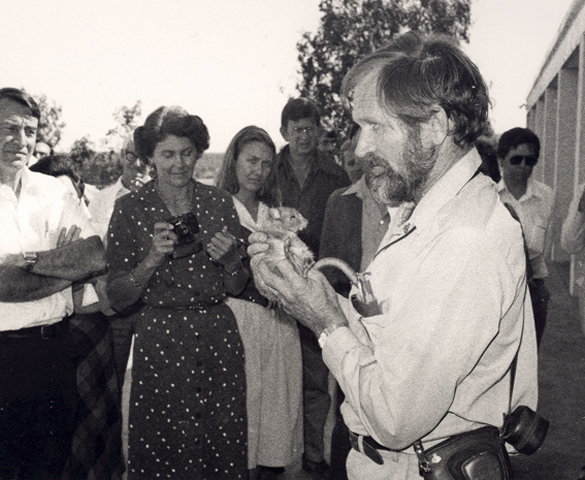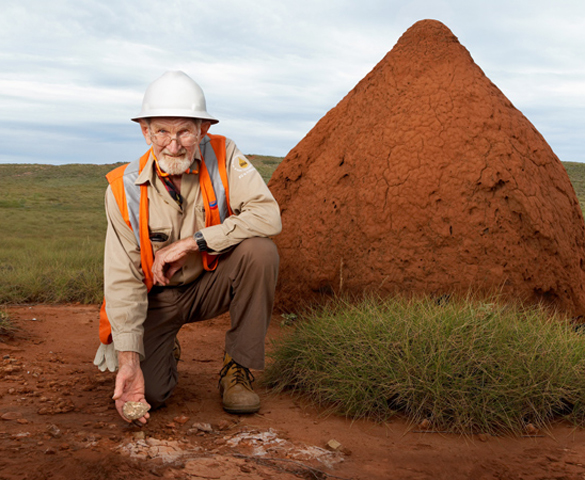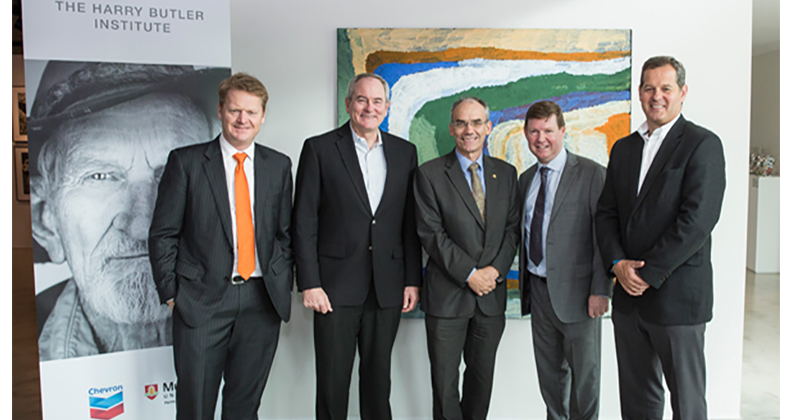feature
honoring
an environmental pioneer:
harry butler institute
For more than 50 years, Dr. Harry Butler helped shape and maintain Chevron’s environmental management practices to protect Barrow Island about 37 miles off the northwest coast of Western Australia. The island, a Class A Nature Reserve, is home to our Gorgon Project and is also the largest onshore oil field in Australia, producing more than 320 million barrels of oil since 1967.


On his passing in December 2015, Dr. Butler left a true legacy – one which Chevron is committed to upholding. Chevron has recently honored his legacy by partnering with Murdoch University to establish the Harry Butler Institute in Perth, Western Australia. The institute will promote high-quality teaching and research in the coexistence of business and biodiversity, with a focus on the oil and gas industry. The institute’s initiatives will include PhD programs and honors projects in biosecurity and environmental science; the development of an undergraduate bioeconomic curriculum; establishment of a Barrow Island Research Centre; ongoing advisory role for institute chair; science exchange programs and more.
Speaking at the institute’s launch, Executive Vice President for Upstream Jay Johnson said, “There is no replacing Harry Butler, but what we can do to honor him is to replicate the passion, the dedication, the values that he taught so many of us as we move into the future.”
In partnership with the university, Chevron will establish the Chevron Harry Butler Chair in Environmental Management and Biosecurity. The chair will lead and coordinate education, research and technical advice, enhancing Chevron Australia’s research activities and the quality of environmental management in our operations.
The creation of the institute and environmental chair are part of Chevron’s Harry Butler Legacy Project, which will encompass existing programs and a suite of new initiatives to advance environmental stewardship. Key components of the legacy project include nurturing an inspired and engaged workforce; third-party partnerships and collaboration; identifying and addressing knowledge gaps and volunteering in the community.
partners in conservation
Butler’s partnership with Chevron dates to the early 1960s, when he accompanied a team searching for oil onto Barrow Island. Over the next 50 years, he made a major contribution with his conservation work on the island, where we have operated an oil field and more recently built a liquefied natural gas (LNG) plant as part of Gorgon.
“Harry believed that ecosystems include humans and he believed in educating people on their role in protecting that ecosystem,” said Johnson. “You can’t just exclude humans from the environment – we’re a part of it. As a result, he unlocked the power of working with businesses to protect biodiversity – and found a dedicated partner in Chevron and its employees.”

(from left) David Flanagan, Murdoch University Chancellor, Jay Johnson, executive vice president, Upstream, David Morrison, Murdoch University Vice Chancellor, Simon McKirdy, Harry Butler Institute Director and Nigel Hearne, managing director, Australasia business unit, gather at the new institute.
Dr. Butler’s work with Chevron also pioneered a Quarantine Management System (QMS) on the island that has been recognized as world’s best practice. The QMS is the largest nongovernment quarantine initiative in the world and focuses on preventing the introduction of nonindigenous animals and plants that could potentially establish on the island, predate native species or compete with them for food, water and shelter.
Quarantine Manager Johann Van Der Merwe worked closely with Chevron employees, industry partners and the Butler family to develop the Harry Butler Legacy Project. “We must learn from Harry and go from being engaged and informed to being involved in our communities and our environment far beyond the boundaries of our corporation.”
Dr. Butler’s enduring advice is closely aligned with Chevron’s environmental principles, which involve including the environment in decision making, reducing the environmental footprint, operating responsibly, and stewarding operating sites.
"Harry was a remarkable Australian and true champion of the environment,” said Nigel Hearne, managing director, Australasia business unit. “As our world-class operations in Western Australia transform Chevron into a leading, safe and reliable global natural gas supplier, we are committed to continuing Harry’s legacy for future generations."
Published: September 2017